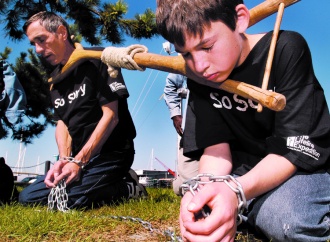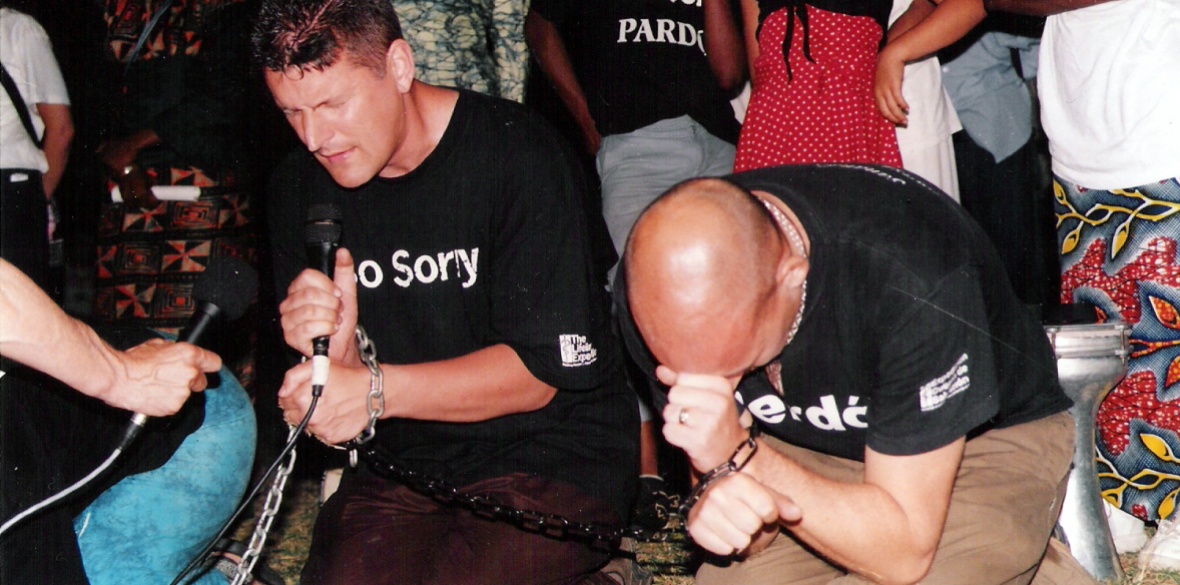This is the last article you can read this month
You can read more article this month
You can read more articles this month
Sorry your limit is up for this month
Reset on:
Please help support the Morning Star by subscribing here
INTERNET documentary-maker Mike Nayna two days ago released part two of his recent documentary series, following left-wing academics James Lindsay, Helen Pluckrose and Peter Boghassian in a detailed experiment testing the intellectual limits of modern academic journals.

The experiment is a rewrite of the Sokal Affair of 1996, in which Alan Sokal successfully published his hoax article Transgressing the Boundaries: Towards a Transformative Hermeneutics of Quantum Gravity in a respected journal.
But where the target of Sokal’s joke article was the rise of ‘90s post-modernism, the recent hoax has targeted modern academic trends in identity politics, intersectionality and the social sciences.
Pranksters have labelled these academic areas Grievance Studies and claim to be exposing “a political corruption that has taken a hold of the university,” in which it “… appears beyond dispute … that making absurd and horrible ideas sufficiently politically fashionable can get them validated at the highest levels of academic grievance studies.”
Over seven of these essays have now been published, and authors promise more to come. The published examples include an essay where sections of Mein Kampf were rewritten as intersectional feminist polemic, a nonsensical essay written via computer algorithm, an essay arguing that white schoolchildren should be chained to the floor in their classrooms and not allowed to speak and an essay arguing that “dog-humping incidents” in parks are examples of rape culture.
To add insult to injury, several essays received official accolades for their work, and the authors have been invited to peer review four of the journals themselves resulting from their entries (although reviewers were concerned that the “dog park” essay may have violated the privacy of some of the dogs).
But although these examples seem hilarious to a casual onlooker, this recent experiment has exposed disturbing and systemic problems within the social sciences which have grave implications for the left.
Firstly, universities (and the humanities) are a vital structural component in our society, and any drift from reality damages all of us.
Universities should be the guardians of intellectual rigour, our social memory and a commons through which human knowledge is collectively shared.
What this experiment has shown is that many universities and academic journals are incredibly removed from the general public and common sense, and increasingly from reality.
In a week when Manchester Students Union has been roundly criticised for banning clapping at its meetings, this cultural distance from the general public could not be clearer.
Secondly, the experiment has also proven the lack of academic credentials behind many areas of the modern social sciences — fields which should rightly be the natural field of the political left. The inability to tell truth from fiction, or apply serious standards to academic work, is very worrying.
And finally, this experiment has revealed the extent to which outright cruelty, bigotry and abusive behaviour have become intellectually normalised in certain areas of the left. When supposedly progressive academics are unable to see that a policy of chaining schoolchildren to the floor and barring them from speaking is child abuse, that person can no longer be considered a meaningful supporter of social justice.
Universities are a training ground for the next generation of professionals — politicians, lawyers, journalists, and intellectuals. The left students of today will be the opinion-formers and leaders of tomorrow — and at the moment they are being inculcated in a hateful culture of sectarianism and surreal nastiness.
If the left is to avoid becoming an arm of this elitist intellectual movement, associated with its bizarre rituals of self-flagellation, verbal and physical abuse and social ostracism, it must be clear that the theory and practice surrounding “grievance studies” is nothing to do with us.











